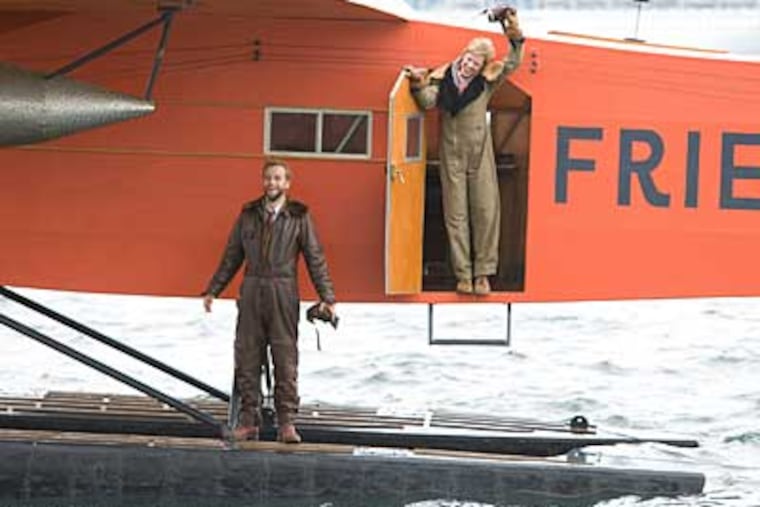Biopic of aviator Amelia Earhart never gets off the ground
"Amelia" tells the story of pioneering aviator Amelia Earhart with a style that is anything but. Glossy, stodgy and unfailingly conventional, "Amelia" sets out to inspire an audience but never feels inspired itself.

"Amelia" tells the story of pioneering aviator Amelia Earhart with a style that is anything but.
Glossy, stodgy and unfailingly conventional, "Amelia" sets out to inspire an audience but never feels inspired itself.
Signs of trouble surface early, when Amelia (Hilary Swank) meets promoter and future husband George Putnam (Richard Gere), who makes a windy speech that includes the lines "let me be frank" and "let me be perfectly clear."
He doesn't say "let me be redundant," but then he doesn't have to. Characters fight throughout "Amelia" with the grand speeches and exposition that often dog the biopic. Here, things are frequently made worse by some pushy musical cue designed to announce that we're about to be stirred.
Swank, who has two Oscars and probably signed on to "Amelia" for a shot at a third, is confined to a puzzlingly narrow range of expression, although that confinement doesn't extend to her wardrobe.
She models an impressively large and smashing collection of '20s and '30s fashion, and we're reminded in "Amelia" that Earhart was perhaps the country's prototypical branded celebrity. She had her own line of clothes, luggage, etc., and endured a fair amount of criticism for it at the time.
Earhart as the urtext for PR men who link merchandise with persona - it feels like that's where director Mira Nair wants to go, but the movie's other impulses get in the way.
One is a soapy love story. Earhart's childhood was marked by an absent father, and she first falls in love with the older, paternal Putnam. She then meets and is smitten by the younger, more dashing Gene Vidal (a miscast Ewan McGregor).
It is here that "Amelia" encounters what we might call a biohazard - the biopic's need to impress the audience with the intersection of famous people. The movie keeps tripping over itself to mention that Vidal's son is named Gore, so that we don't miss it. Just as it wedges in a night flight over D.C. during which Amelia hand the controls to Eleanor Roosevelt, a flying-celebrity bit that was handled better in "The Aviator."
And of course there is requisite attention paid to Earhart's status as feminist icon, with attendant metaphors linking flying to freedom.
Nair ("The Namesake") is a gifted lyrical filmmaker who excels in intimate spaces, but she never finds the lyricism of Earhart's passion for flying (when Amelia tosses a scarf out the window of her Lockheed Electra, it feels a little desperate).
In the end, we're left with History Channel-style recreations of her final moments over the Pacific, and you wonder if 10 hours on TNT might have been a more appropriate form for the material.